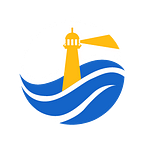Indonesia Builds Momentum for Sustainable Ocean
Indonesia is one of only 14 countries committed to a sustainable ocean economy (SOE), but domestic problems are hindering the archipelagic country from reaching its goal of total ocean sustainability by 2025.
By Diana M, Indonesia correspondent, Maritime Fairtrade
Together with leaders of Australia, Canada, Japan and other countries that make up The High Level Panel for a Sustainable Ocean Economy or simply Ocean Panel, Indonesia becomes one of the only handful of countries which believe that “effective protection, sustainable production and equitable prosperity go hand in hand.”
The Ocean Panel is the only ocean policy body made up of serving world leaders with the authority needed to trigger, amplify and accelerate action worldwide for ocean priorities. It is supported by the UN Secretary-General’s Special Envoy for the Ocean.
Two hurdles to overcome
However, national maritime development expert Aryanto Husain warned that there are certain issues the government must attend to in order for the goals to become feasible. The first pressing issue is that the current governance needs a major overhaul.
As the “new ocean narrative” focuses on sustainability, the old “extractive” development paradigm must change. Husain said Indonesia is still trapped by stale view that economic development merely means productivity or even exploitation, with conservation and sustainability oftentimes being put aside.
“(Ocean management in Indonesia) has been mainly about increasing GDP and ramping up revenue,” Husain said during a webinar attended by Maritime Fairtrade. “On the other hand, the main purpose of SOE is sustainable development, in which prosperity does not always equal exploitation. This is a difficult challenge for developing countries that still have the tendency to accelerate development through exploitation.”
Secondly, the maritime community is also having concerns regarding the protection of conservation area in Indonesia since the issuance of a new government regulation that allows the change of status of “core zone” in the conservation area, as the regulation opens the possibility for core zone to be exploited for the sake of economic development.
According to the Ministry of Maritime Affairs and Fisheries, core zone is “part of conservation area in the coastal areas and small islands that is protected and intended for the protection of habitat and population of resources” and “its use is limited for research”.
“The change can be acceptable as long as it ensures sustainability. Precautionary measures must be in place as conservation area is our only hope to preserve natural resources,” Husain explained.
Moving from traditional practice to modernization
The government has to modernize the fisheries. The authority has to do more to raise awareness, promote and subsidize the use of bigger boats and more advanced fishing equipment, and also encourage local fishermen to sail farther to the exclusive economic zone (EEZ) to optimize their catch.
In this regard, officials have to give the fishermen the relevant training and support to do so. An upside of travelling farther to the EEZ, among others, is that the usual coastal area fishing grounds is given a period of time to rejuvenate to recover from overfishing.
“What we see now, especially in the more rural side of Indonesia, is that the fishing contribution is still dominated by boats that sail within only four miles of the coastal areas which is also conservation areas. So, it’s best if fishermen are encouraged to go farther because if this practice continues, it can put the conservation effort at risk,” Husain said.
Another measure the government can consider is to modernize the ports, in collaboration with the private sector, to accommodate bigger boats. Husain also added that the planning and implementation of the SOE measures must be holistic taking into account other aspects of national development like land planning.
Having a marine cadastre is another necessary aspect that can help Indonesia integrate the ongoing economic development with its sustainability goals. A marine cadastre is an information system to enable the boundaries of maritime rights and interests to be recorded, spatially managed and physically defined in relationship to the boundaries of other neighboring or underlying rights and interests.
The existence of a marine cadastre is even more important for an archipelagic country. Among other benefits, Husain said having a comprehensive marine cadaster can help Indonesia in preserving harmony between national law and the many customary laws often found in an archipelago.
Harmonious relationship between local and central governments should also be maintained to avoid any unnecessary clash that might hinder the development plans from optimally working for the benefit of the people. While national projects usually offer help to local community in the forms of employment and economic development, Husain warned that officials must also be continuously cautious of environmental impacts of those projects.
